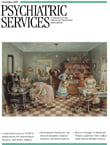Letter
Psychosocial Distress in Cancer Patients' Families
To the Editor: In the August issue Muriel and colleagues ( 1 ) reported results from a study that surveyed oncologists about how they managed their patients' psychosocial distress. The high screening and referral rates are encouraging. Yet I was struck by the lack of attention to family members' psychosocial distress, which can often have profound effects on a patient's psychosocial needs. Failure to engage a patient's family in the screening and referral process can render futile all the patient interventions—from support groups to referrals to social workers and psychiatrists.
Treating the family of a cancer patient is not part of usual care. Even at tertiary care cancer hospitals, where the threshold for initiating psychosocial interventions is low, implementing family involvement remains a challenge. I read Muriel and colleagues' report while caring for a profoundly depressed patient with metastatic gastric carcinoma. Our attending oncologist addressed psychosocial distress early on in the management of the patient, and the primary team planned to obtain an official psychiatry consult to help manage the patient's depression. However, we stalled—not because the resources were not available at our institution, not because the team was insensitive to the psychosocial issues in the case, and not because the patient, who had capacity, was resistant to receiving psychosocial interventions. Instead, it was the patient's family that presented the barrier to optimal psychosocial care.
Their resistance began with the psychosocial screening process. They demanded that no mental status exams be performed because the questions were "belittling" to the patient, but every time they themselves detected a change in mental status, they demanded STAT head CTs and neurosurgical consults before psychiatric consults were "permitted." Under medicolegal pressure from the hospital's administration and from the Patient Services Department, who were embroiled in impending litigation with the family, the primary team scurried about mollifying the family's demands, gathering consults from neurology, hematology, neurosurgery, and even general medicine but unable to obtain the raw data (a mental status exam and depression screen) to intervene psychiatrically.
This family's suspicious and threatening attitude toward medical care in general and psychiatric care in particular was an extreme but understandable reaction to the stress of their loved one's illness. Though extreme, it provides an example of how a patient's family can become the barrier to psychosocial care even in settings where screening is regularly performed and interventions are readily available. Although oncology patients can be deemed "without capacity to make medical decisions" or "a danger to themselves," their families cannot. The family cannot be referred for a psychiatry consult, and the family cannot be collectively prescribed anxiolytic and antidepressant medications or sent to therapy under duress to help manage their reactions to their loved one's terminal illness.
It is heart-wrenching to stand helplessly by as a family inadvertently ruins the opportunity for their loved one to enjoy his or her final days. Finding ways to involve "difficult" families in psychosocial interventions without violating the trust and autonomy of the patient and the family is essential to developing more effective psychosocial care in cancer medicine.
1. Muriel AC, Hwang VS, Kornblith A, et al: Management of psychosocial distress by oncologists. Psychiatric Services 60:1132–1134, 2009Google Scholar



